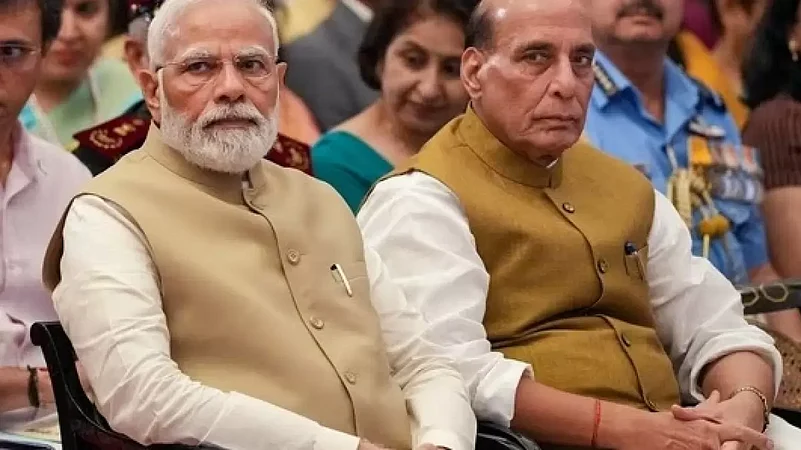In a bid to overhaul the Defence Research and Development Organization (DRDO), Union Defence Minister Rajnath Singh formed a nine-member committee of experts under directions of Prime Minister Narendra Modi.
A report is expected from the committee within next three months.
Who all are included in the committee?
As per media reports, Prof K Vijay Raghavan, the former Principal Scientific Advisor to the Government of India and one of the key architects of the National Research Foundation (NRF), has been appointed to review and redefine the role of the department.
Besides Raghavan, the committee also includes Lt Gen (Retd) Subrata Saha, former Deputy Chief of Army Staff, Vice Admiral S N Ghormade, former Vice Chief of Navy Staff, Air Marshal B R Krishna, former Chief of Integrated Staff, Sujan R Chinoy, DG of MP-IDSA, Prof Manindra Agarwal of IIT Kanpur, S.P. Shukla, President SIDM, J D Patil of Larsen and Toubro, Defence, Dr S Unnikrishnan Nair, Distinguished Scientist, ISRO, and Ms Rasika Chaube, Financial Advisor, Ministry of Defence.
Objectives of the committee
According to the DRDO Chief Samir V Kamat, the committee's primary objectives include restructuring and redefining the role of Department of Defence (R &D) and DRDO, as well as their relationship with each other and with academia and industry.
Moreover, the committee will also work on the folowing aspects:
- Maximising academia, MSME, and start-up participation in the development of cutting edge technologies.
- Attract and retain high-quality manpower, including a system of project based manpower by a proper system of incentives and disincentives, with strict performance accountability, and weed out the non-performers.
- Utilize the expertise of NRIs/foreign consultants, inter-country collaborations for development of cutting edge and disruptive defence technologies.
- Modernize administrative, personnel and financial systems to achieve speedier implementation of projects.
- Rationalisation of laboratory structures and their performance evaluation process.
The decision to supervise the functioning of DRDO came as an endeavour to tackle the issues like lack of accountability and delayed research in the organization.The DRDO already has a reputation of acting as an obstacle on the way of the best defence acquisitions for the Indian Armed Forces in the name of developing indigenous defence repertoire.


























